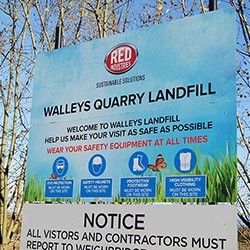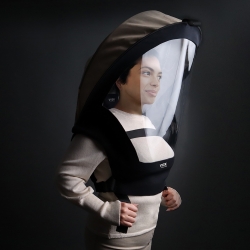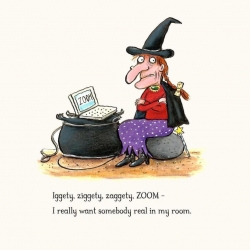March 7, 2021
Test
[nbz-inline-newsletter]
Wellbeing at Work Summit US 2026,
New York, Austin and Online
03 March 2026
More information
CoreNet APAC Summit -Innovate to Thrive: Driving Strategic Growth, Empowering Real Estate Leadership,
Kuala Lumpur
03 March 2026
More information
Data Centre World London,
London
04 March 2026
More information
The Future of Work Management,
London
05 March 2026
More information
Working Symposium,
London
05 March 2026
More information
Mould Exhibition,
London
05 March 2026
More information
Interior Design Exhibition in Leeds - Design Festival North,
Leeds
11 March 2026
More information
World Workplace Europe,
The Hague
11 March 2026
More information

![]()
March 1, 2021
by Mark Eltringham • Environment
 We need to talk about Red Industries. More specifically we need to talk about the firm’s Walley’s Quarry landfill site in the town of Newcastle-under-Lyme.
We need to talk about Red Industries. More specifically we need to talk about the firm’s Walley’s Quarry landfill site in the town of Newcastle-under-Lyme.
First up, a disclaimer. I am a native of the town. Fairly recently, I returned to live there after many years away. Most importantly in the context of what I am about to write, my mum was laid to rest in the town. Her grave lies in the main cemetery of the village of Silverdale.
Silverdale has a population of a little under 5,000 people. The Borough of Newcastle-under-Lyme is largely formed from a number of similar villages and has a total population of about 130,000.
Yet this small village in this small town is the source of more complaints to the UK’s Environment Agency than any other location in the country. Last weekend alone the council received around 2,000. Many hundreds more were made to the EA (exact numbers are vague although the EA admits it was a record number). Those complaints include one of my own. All referred to the polluting stench of sulphurous rot emanating from the landfill site in the village, owned by Red Industries.
Call the EA reporting hotline and the first question you are asked before saying anything else is whether the complaint is about Walley’s Quarry. That tells its own story.
The wider problem
Among the complainants were local schools, Keele University and the local hospital. To put this into context, the hospital is 2.5 miles away from the landfill and the stench was reported inside the building. My own home is around 2 miles away and my complaint about Red Industries and its hell hole was made from there.
My mother’s grave lies 100 yards from the entrance to the site. I now cannot visit her without heaving.
God alone knows how awful it must be for mourners at funerals. And how much worse for those who live nearby. Although you can get some idea from the activist Facebook Group set up to tell their stories. Those stories have amped up since the site was granted a new licence last year. That doesn’t seem a coincidence.
I could say the Environment Agency is pussy footing around the issue, but they are not even doing that. Last weekend’s deluge of complaints to the agency coincided with the introduction of new monitoring equipment at the site. On Monday it became apparent that this equipment wasn’t even turned on.
And so, the suggestion from MP Aaron Bell that the weekend should be considered an incident in its own right can be dismissed by the very people supposedly responsible for protecting the environment. I don’t know what they make of his raising the issue in Parliament.
Yesterday I asked @CommonsLeader about two air quality issues in #NuL.
I was pleased to hear the Government will not be imposing a congestion charging solution to the nitrogen dioxide exceedances on Basford Bank.
Cllr @SimonTagg and I will be visiting Walley's Quarry today. pic.twitter.com/3emovxA33S
— Aaron Bell MP (@AaronBell4NUL) January 15, 2021
And the response of Red Industries to what is happening? It is to hide behind regulations and the skirt tails of the useless EA, refuse to acknowledge the problem and write intimidating letters to the MP.
A new motion put forward to the council suggests that the site needs to close while a better plan is formulated. The leader of the council has called on the local head of the EA to resign and for the site to be closed permanently. His organisation is now actively at loggerheads with the EA. This is getting very real, very quickly.
@EnvAgencyMids The Council received more than 2,000 complaints about the odour at the weekend. We had officers out on the ground monitoring the situation and evidencing residents’ complaints until well past midnight on Saturday. We have colleagues living across the borough ? pic.twitter.com/23UEiA70Su
— Newcastle-u-Lyme BC (@NewsNBC) March 2, 2021
Something needs to change and soon. The site as managed by Red Industries is – at the very least – worsening the daily lives and wellbeing of tens of thousands of people. It may well be affecting their physical health. These people are being let down by the Environment Agency which needs to be far more proactive and possibly aggressive in its dealings with Red Industries. Already there have been minor protests, including one man chaining himself to the gates of the site. But if local people cannot rely on the agencies that should be protecting them, we might expect those protests to ramp up.
This is a personal post, but it’s very important to me. It will stay online but not appear on the homepage.
February 15, 2021
by Mark Eltringham • Features, Premium Content
 The digital edition of IN5 is now available, exploring the very latest thinking on people, places and technology with print copies on their way soon. In the new issue: the different responses of nations to the pandemic; how some furniture makers are using new materials to do something real about the environment; interviews with Marie Puybaraud and Neil Usher; masks and helmets at work; the new opportunities for the workplace professions; how a new office in Athens combines ancient wisdom and modern thinking; the potential for us to drift into a new form of feudalism; and all the latest, news and commentary you need; plus some other stuff you didn’t know you needed. (more…)
The digital edition of IN5 is now available, exploring the very latest thinking on people, places and technology with print copies on their way soon. In the new issue: the different responses of nations to the pandemic; how some furniture makers are using new materials to do something real about the environment; interviews with Marie Puybaraud and Neil Usher; masks and helmets at work; the new opportunities for the workplace professions; how a new office in Athens combines ancient wisdom and modern thinking; the potential for us to drift into a new form of feudalism; and all the latest, news and commentary you need; plus some other stuff you didn’t know you needed. (more…)
February 9, 2021
by Mark Eltringham • Comment, Flexible working, Technology, Wellbeing, Workplace design
 For now, just forget the cyborg monkeys and spinach sending emails, the real short term tech action is all about how to gauge what workers are thinking or doing, and what to do about it – especially if whatever they are thinking and doing is not what the org wants for them or, more importantly, itself. Things are getting crazy. (more…)
For now, just forget the cyborg monkeys and spinach sending emails, the real short term tech action is all about how to gauge what workers are thinking or doing, and what to do about it – especially if whatever they are thinking and doing is not what the org wants for them or, more importantly, itself. Things are getting crazy. (more…)
February 3, 2021
by Mark Eltringham • Comment, Wellbeing
 When it comes to understanding motivation, the stepping off point for most people is Abraham Maslow’s Hierarchy of Needs. The theory is now nearly 80 years old and its endurance is some kind of testimony to its insight. Yet a recent paper published in the Journal of Humanistic Psychology, authored by William Compton of Middle Tennessee State University argues that some of the ideas we most commonly associate with the theory seem to be myths. These include its most fundamental concept, the Pyramid of Needs.
When it comes to understanding motivation, the stepping off point for most people is Abraham Maslow’s Hierarchy of Needs. The theory is now nearly 80 years old and its endurance is some kind of testimony to its insight. Yet a recent paper published in the Journal of Humanistic Psychology, authored by William Compton of Middle Tennessee State University argues that some of the ideas we most commonly associate with the theory seem to be myths. These include its most fundamental concept, the Pyramid of Needs.
January 5, 2021
by Mark Eltringham • Cities, Comment, Flexible working, Technology
 The idea of a Global Village comes loaded with a number of idyllic connotations. Most of them derive from the use of the word village itself, which triggers the idea of a community in our minds. Yet even the man who coined and popularised the term in the 1950s and 60s to describe a world contracted by new media understood that there are always complications whenever technology rubs up against human beings. (more…)
The idea of a Global Village comes loaded with a number of idyllic connotations. Most of them derive from the use of the word village itself, which triggers the idea of a community in our minds. Yet even the man who coined and popularised the term in the 1950s and 60s to describe a world contracted by new media understood that there are always complications whenever technology rubs up against human beings. (more…)
December 18, 2020
by Mark Eltringham • Comment, Flexible working, Technology, Wellbeing, Workplace design
 Originally published in March, right at the start of all this. Makes me wonder how far we’ve come in nine months. In Dorian Lynskey’s The Ministry of Truth, a “biography” of Nineteen Eighty-Four, the author describes how Orwell’s book was the end point of an obsession with utopian (and ultimately dystopian) fiction that characterised the first half of the Twentieth Century, and reflected the competing political, social and economic ideologies of the era. (more…)
Originally published in March, right at the start of all this. Makes me wonder how far we’ve come in nine months. In Dorian Lynskey’s The Ministry of Truth, a “biography” of Nineteen Eighty-Four, the author describes how Orwell’s book was the end point of an obsession with utopian (and ultimately dystopian) fiction that characterised the first half of the Twentieth Century, and reflected the competing political, social and economic ideologies of the era. (more…)
December 12, 2020
by Mark Eltringham • Comment, Workplace design
One of the best tricks Clive James ever pulled was finding acceptance as a public intellectual in the UK. It’s not easy in a country in which it is possible to be too clever by half or even too clever for your own good. Stephen Fry continues to pull it off as does Mary Beard, but it’s a hell of a thing to achieve. In the UK it seems to rely on straddling at least two worlds. (more…)
December 10, 2020
by Mark Eltringham • Features, Workplace design
From the archive. First published in October  2015. It is perhaps the most common misconception of evolutionary theory that all animals are somehow evolving towards some end point – meaning us. This notion is perhaps best summed up when a sceptic asks: “If we have evolved from monkeys, why are there still monkeys?” The lesser of the two problems with this is its solipsistic assumption that humans are the pinnacles of life and that, if evolution were true, all species would eventually evolve into people. (more…)
2015. It is perhaps the most common misconception of evolutionary theory that all animals are somehow evolving towards some end point – meaning us. This notion is perhaps best summed up when a sceptic asks: “If we have evolved from monkeys, why are there still monkeys?” The lesser of the two problems with this is its solipsistic assumption that humans are the pinnacles of life and that, if evolution were true, all species would eventually evolve into people. (more…)
December 4, 2020
by Mark Eltringham • Comment, Technology, Wellbeing, Workplace design
 When Donald Trump was pictured recently sitting uncomfortably at a table that looked like it had been retrieved from a skip, it provoked the sort of sneering commentary about furniture choices last seen when Dominic Cummings popped in to the Downing Street garden to deliver some self-serving blather from behind a rickety trestle table. (more…)
When Donald Trump was pictured recently sitting uncomfortably at a table that looked like it had been retrieved from a skip, it provoked the sort of sneering commentary about furniture choices last seen when Dominic Cummings popped in to the Downing Street garden to deliver some self-serving blather from behind a rickety trestle table. (more…)








March 6, 2021
Well, at least nobody is whinging about open plan offices anymore
by Mark Eltringham • Comment, Flexible working, Technology, Workplace design
(more…)